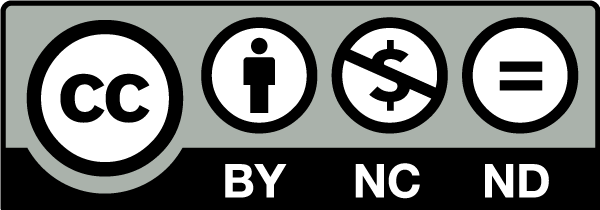Positioning the Self in Blog Posts
A Corpus-based Investigation of Food Blogs in English
DOI:
https://doi.org/10.13136/2281-4582/2024.i23.1443Parole chiave:
food discourse, food blogs, positioning theory, self-positioning, pronounsAbstract
Positioning Theory (PT) first emerged in the 1980s in psychology studies to investigate how people occupy and negotiate their place—both physical and social—while interacting with other people. Research in this area has also considered the linguistic and discursive practices that position interlocutors in any form of communication and interaction, affecting in turn the reciprocal perception of ‘the other.’ This mutual positioning eventually shapes—and is shaped—by discourse in any kind of communicative context. Positioning, then, becomes crucial in digital communication, in which boundaries and perceptions of the ‘self’ and the ‘other’ are in a way distorted by the absence of a physical space that is replaced by a virtual environment. Considering these premises, this study investigates self-positioning strategies in a corpus of food blogs in English. Particular attention is paid to the ways in which the food bloggers employ pronouns to position themselves in the blog posts in order to establish a rapport with their audience, thus creating a peculiar communicative space. Corpus-based methods of investigation are used to explore the corpus, while PT is used to contextualize and interpret corpus data. Results show that the food bloggers in the corpus use pronouns as indexicals that refer to the bloggers’ specific position in the communicative environment to remark their ‘otherness’ with respect to their audience as well as towards specific socio-cultural contexts. In particular, the food bloggers systematically distance themselves both from the community of users following the food blog and from external elements such as brands, institutions, and other cultures’ culinary traditions.
Riferimenti bibliografici
Beeching, Kate, Chiara Ghezzi and Piera Molinelli, edited by. Positioning the Self and Others. Amsterdam: John Benjamins, 2018.
Bramley, Nicolette. The Pronouns of Politics: The Use of Pronouns in the Construction of ‘Self’ and ‘Other’ in Political Interviews. Canberra: Australian National University, 2001.
Cesiri, Daniela. “‘Haha, What a Twit I am.’ The Construction of a Social Identity in the Comments Sections of UK Food Blogs.” TOKEN: Journal of English Linguistics 6 (2017): 109-132.
---. “The Blog is Served: Crossing the ‘Expert/Non-Expert’ Border in a Corpus of Food Blogs.” Colloquium: New Philologies 1 (2016): 47-62.
---. The Discourse of Food Blogs: Multidisciplinary Perspectives. London: Routledge, 2020.
Cotter, Coleen. “Claiming a Piece of the Pie: How the Language of Recipes Defines a Community.” Recipes for Reading: Community Books Stories, Historics. Edited by Anne Bower. Amherst: University of Massachusetts Press, 1997. 51-71.
Diemer, Stefan and Maximiliane Frobenius. “When Making Pie, All Ingredients Must Be Chilled. Including You. Lexical, Syntactic and interactive Features in Online Discourse—A Synchronic Study of Food Blogs.” Culinary Linguistics: The Chef’s Special. Edited by Cornelia Gerhardt, Maximiliane Frobenius and Susanne Ley. Amsterdam: John Benjamins, 2013. 53-81.
Fitzpatrick, Eileen, edited by. Corpus Linguistics Beyond the Word: Corpus Research from Phrase to Discourse. Amsterdam: Rodopi, 2007.
Garzone, Giuliana. “Il genere ricetta in inglese. Dalla tradizione ai food blog tra stabilità ed evoluzione.” Parole per Mangiare. Discorsi e Culture del Cibo. Edited by Irina Bajini, et al. Milano: LED, 2017. 37-56.
Georgakopoulou, Alexandra. “Building Iterativity into Positioning Analysis: A Practice-Based Approach to Small Stories and Self.” Narrative Inquiry 23.1 (2013): 89-110.
Giaxoglou, Korina. “Trajectories of Treasured Texts: Laments as Narratives.” Storytelling as Narrative Practice: Ethnographic Approaches to the Tales We Tell. Edited by Elizabeth Falconi and Kate Graber. Boston: Brill, 2019. 136-162.
Giaxoglou, Korina and Alexandra Georgakopoulou. “A Narrative Practice Approach to Identities: Small Stories and Positioning Analysis in Digital Contexts.” Cambridge Handbook of Identity. Edited by Michael Bamberg, Carolin Demuth and Meike Watzlawik. Cambridge: Cambridge University Press, 2021. 241-261.
Görlach, Manfred. Text Types and the History of English. Berlin: De Gruyter, 2004.
Green, Judith L., et al. “Positioning Theory and Discourse Analysis: An Explanatory Theory and Analytic Lens.” Handbook of the Cultural Foundations of Learning. Edited by Na’ilah Suad Nasir, et al. London: Routledge, 2020. 119-140.
Harré, Rom and Mirjana Dedaić. “Positioning Theory, Narratology, and Pronoun Analysis as Discursive Therapies.” Discursive Perspectives in Therapeutic Practice. Edited by Andy Lock and Tom Strong. Oxford: Oxford University Press, 2012. 45-64.
Harré, Rom and Fathali M. Moghaddan. “Positioning Theory.” The Discursive Turn in Social Psychology. Edited by Nikos Bozatzis and Thalia Dragonas. Chagrin Falls: Taos Institute Publications, 2015. 129-138.
Harré, Rom and Luk Van Langenhove. Positioning Theory: Moral Contexts of Intentional Action. Oxford: Blackwell, 1999.
Harré, Rom and Grant Gillet. The Discursive Mind. London: SAGE, 1994.
Hermans, Hubert and Agnieska Hermans-Konopka. Dialogical Self Theory: Positioning and Counter-Positioning in a Globalising Society. Cambridge: Cambridge University Press, 2010.
Hodges, Holly. “Top 10 UK Food Blogs.” https://www.vuelio.com/uk/social-media-index/top-10-uk-food-blogs/. 2015. Last visited 03/08/2023.
Jones, Raya A. “The Presence of Self in the Person: Reflexive Positioning and Personal Constructs Psychology.” Journal for the Theory of Social Behaviour 27.4 (1997): 455-471.
Jones, Rodney H., Alice Chik and Christoph Hafner, edited by. Discourse and Digital Practices: Doing Discourse Analysis in the Digital Age. London: Routledge, 2015.
Marchitello, Howard and Evelyn Tribble, edited by. The Palgrave Handbook of Early Modern Literature and Science. London: Palgrave Macmillan, 2017.
Martins Felix, Sonia. “Critical Thinking (Dis)Positions in Education for Sustainable Development—A Positioning Theory Perspective.” Education Sciences 13.666 (2023): 1-12.
Norrick, Neal R. “Conversational recipe telling.” Journal of Pragmatics 43.11 (2011): 2740-2761.
Peikola, Matti, Janne Skaffari and Sanna-Kaisa Tanskanen, edited by. Instructional Writing in English. Amsterdam: John Benjamins, 2009.
Scott, Mike. WordSmith Tools Version 8. Stroud: Lexical Analysis Software, 2020.
Slocum, Nikki and Luk Van Langenhove. “Integration Speak: Introducing Positioning Theory in Regional Integration Studies.” The Self and Others: Positioning Individuals and Groups in Personal, Political, and Cultural Contexts. Edited by Rom Harré and Fathali M. Moghaddam. Santa Barbara: Praeger Publishers/Greenwood Publishing Group, 2003. 219-234.
Timmis, Ivor. “Pronouns and Identity: A Case Study from a 1930s Working-Class Community.” ICAME Journal 39 (2015): 111-134.
Tirado, Francisco and Ana Gálvez. “Positioning Theory and Discourse Analysis: Some Tools for Social Interaction Analysis.” Forum Qualitative Socia Research 8.2 (2007): article 31.
Wortham, Stanton. “Interactional Positioning and Narrative Self-Construction.” Narrative Inquiry 10.1 (2000): 157-184.
Downloads
Pubblicato
Fascicolo
Sezione
Licenza
Copyright (c) 2024 Daniela Cesiri

Questo lavoro è fornito con la licenza Creative Commons Attribuzione - Non commerciale 4.0 Internazionale.
Iperstoria è una rivista accademica ad accesso libero.
a. Gli autori detengono il copyright e danno alla rivista il diritto per la prima pubblicazione con il contributo sotto licenza Creative Commons che permette di condividere l’articolo con il riconoscimento della prima pubblicazione su questa rivista.
b. Gli autori possono inoltre stabilire ulteriori direttive contrattuali per la distribuzione non esclusiva della versione del contributo pubblicata sulla rivista (es. ripubblicarlo in archivi istituzionali o in un volume), con uno specifico riconoscimento della prima pubblicazione su questa rivista. Chiediamo pertanto agli autori di contattarci nel caso di eventuali ripubblicazioni.







